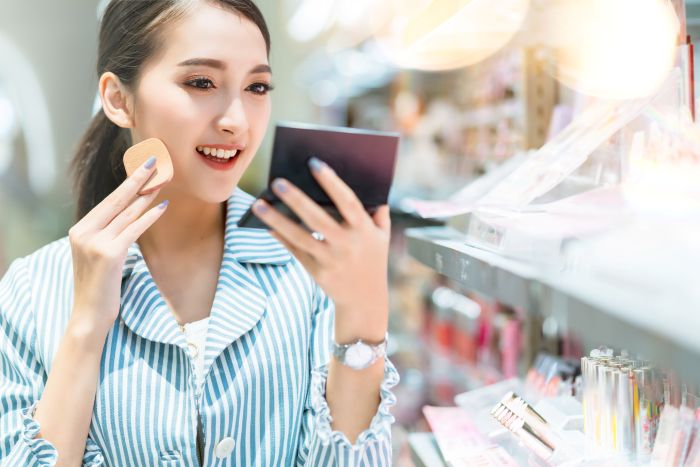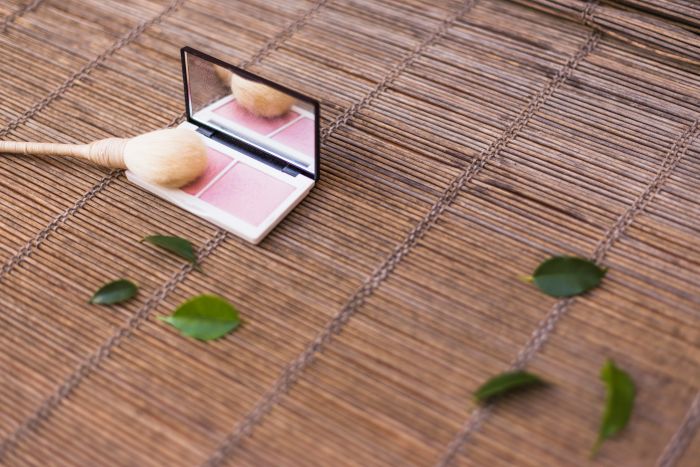For U.S. beauty brands, partnering with the right cosmetic OEM manufacturer can be the difference between a smooth product launch and a costly, frustrating experience. Whether you’re a start-up beauty label, a mid-sized indie brand, or an established retailer expanding into private label products, choosing a manufacturer who understands your market, your compliance requirements, and your brand vision is essential.
As the global cosmetics industry grows and is projected to surpass $570 billion by 2030, more brands are turning to OEM (Original Equipment Manufacturer) partners to accelerate development, control costs, and stand out in a competitive space. But with hundreds of manufacturers to choose from, especially in overseas markets like China, how do you ensure you’re making the right choice?
This guide takes you through the process step-by-step, using proven strategies, industry insights, and the kind of practical advice that comes from years of manufacturing experience.
Why U.S. Brands Choose OEM Manufacturing
OEM manufacturing offers a clear advantage for brands aiming to create custom beauty products without investing in their own production facilities. By outsourcing to an experienced manufacturer, you eliminate the heavy costs of building and maintaining your own factory while gaining access to a complete production system.
One of the biggest advantages is cost efficiency. Manufacturers already have the machinery, trained staff, and supplier networks in place, which means your startup expenses are far lower. It also allows you to bring products to market faster since you skip the time it would take to set up your own production.
Formulation expertise is another draw. Many OEMs have dedicated research and development teams that can help you create new, innovative formulas or improve existing ones. And because you’re working with an established production line, scaling from small runs to large orders becomes much easier. Customization options for both formulas and packaging give you the creative control to make sure your products reflect your brand identity.
For U.S. brands, working with a qualified Chinese OEM manufacturer often means competitive pricing without compromising on quality, provided you choose a partner with the right certifications and experience.
OEM vs. ODM: Understanding the Difference
While the terms OEM and ODM (Original Design Manufacturer) are often used together, they describe different services. OEM manufacturing means the manufacturer creates products according to your specific formulation or design. ODM manufacturing means the manufacturer already has existing formulas or designs that you can customize and brand as your own.
Many manufacturers, including Dinghui Cosmetics, offer both models. Having that flexibility is valuable because it allows you to choose the approach that best suits your budget, creative control, and production timeline.

What to Look for in a Cosmetic OEM Partner
The beauty industry is competitive, so your manufacturing partner must be more than just capable. Certifications and compliance credentials are essential, especially for U.S. market entry. Look for internationally recognized standards such as ISO22716, GMPc, and Halal. These indicate that the manufacturer follows strict quality and safety procedures.
Strong research and development capabilities are equally important. An OEM with in-house chemists and product developers can help you innovate, adapt to trends, and create custom products that meet your target market’s demands.
Quality control should be embedded into every stage of production, from sourcing raw ingredients to final packaging. This protects your brand’s reputation and ensures consistency. Flexible minimum order quantities can make a big difference for smaller brands, allowing them to test products without committing to large runs.
Clear communication and transparency around timelines, pricing, and production updates are also vital. And finally, your manufacturer should understand U.S. consumer trends, labeling laws, and compliance requirements, ensuring your products are both appealing and legally marketable.
Dinghui’s Edge: Why U.S. Brands Choose Us
Since 2008, Dinghui Cosmetics has specialized in OEM and ODM manufacturing for makeup, skincare, and personal care products. Our production facility meets strict global standards and holds ISO22716 and GMPc certifications. We work with brands from initial concept through final delivery.
Our research and development team is skilled in trending formulations, including clean beauty and long-wear makeup. We offer custom packaging options to match your brand identity and support small-order runs for brands entering the market. Our advanced machinery and automation ensure consistent quality at scale.
With clients in more than 30 countries, including the U.S. and UK, we combine competitive pricing with a track record of compliance and quality. You can learn more on our Our Services page.
The Step-by-Step Process of Partnering with a Cosmetic OEM
The first step is an initial consultation, where you share your brand vision, product ideas, and market goals. This sets the foundation for the project.
Next comes formulation and sampling. Our R&D team develops prototypes based on your requirements, and you review and refine them until they meet your standards.
Once the product formula and design are finalized, contracts are signed, timelines are set, and we ensure everything aligns with U.S. compliance requirements. Production then begins, with raw materials sourced, tested, and prepared under strict quality controls.
Packaging follows production. Your products are filled, sealed, labeled, and packed exactly as specified. A final inspection is carried out before the products are shipped to your chosen destination.
Key Considerations for U.S. Market Compliance
The U.S. FDA regulates cosmetics under the Federal Food, Drug, and Cosmetic Act. While FDA approval is not required before sale (except for color additives), products must still be safe for consumer use and properly labeled.
When manufacturing for the U.S., make sure your ingredient lists follow International Nomenclature of Cosmetic Ingredients (INCI) standards. All packaging must display net weight, manufacturer details, and required safety labeling. If your products use color additives, they must be FDA-approved for the intended use. Any claims you make, such as “organic” or “hypoallergenic,” must be truthful and supported by evidence.
Partnering with a manufacturer that already exports to the U.S., like Dinghui Cosmetics, helps ensure these requirements are met from the start.
Case Scenario: Launching a Clean Beauty Makeup Line
Consider a small U.S. indie brand aiming to enter the clean beauty market. They want a foundation line free from certain preservatives and fragrances, with packaging that is both attractive and eco-friendly.
With Dinghui’s OEM services, they could develop a custom formula that aligns with clean beauty principles, select sustainable packaging options, and start with a smaller initial production run for market testing. If the product gains traction, they can scale up quickly without changing suppliers.
This flexibility allows brands to adapt to demand while keeping quality and brand identity intact.

Building a Long-Term Relationship with Your OEM
A good manufacturing partnership goes beyond the first order. Over time, your OEM should become a strategic ally. They should help you adapt to new market trends, launch new products with minimal disruption, and maintain quality standards as you grow. They can also assist in optimizing costs through bulk material sourcing and improved processes.
Maintaining open and consistent communication is the key. Provide clear feedback, be transparent about your business goals, and approach your OEM as a partner rather than simply a service provider.
Frequently Asked Questions
What is the typical lead time for OEM cosmetics?
Depending on the complexity and volume of the order, lead times can range from 30 to 90 days.
Can I place a small order for testing the market? Yes. Dinghui supports small-order production, which is ideal for new brands testing product viability.
Do I have to supply my own packaging design?
You can, but it isn’t required. We offer packaging design services for brands that prefer to have everything handled in one place.
What if I’m not happy with the samples?
We work with you until the formula meets your expectations before moving into full production.
Final Thoughts
Choosing the right cosmetic OEM partner is one of the most important steps in building a successful beauty brand. The right manufacturer will protect your product quality, ensure regulatory compliance, and help you adapt quickly to trends.
Dinghui Cosmetics offers the experience, certifications, and flexibility U.S. brands need to bring their vision to life. If you are ready to explore your options, browse our Makeup Products to see the types of formulations we can create for you.